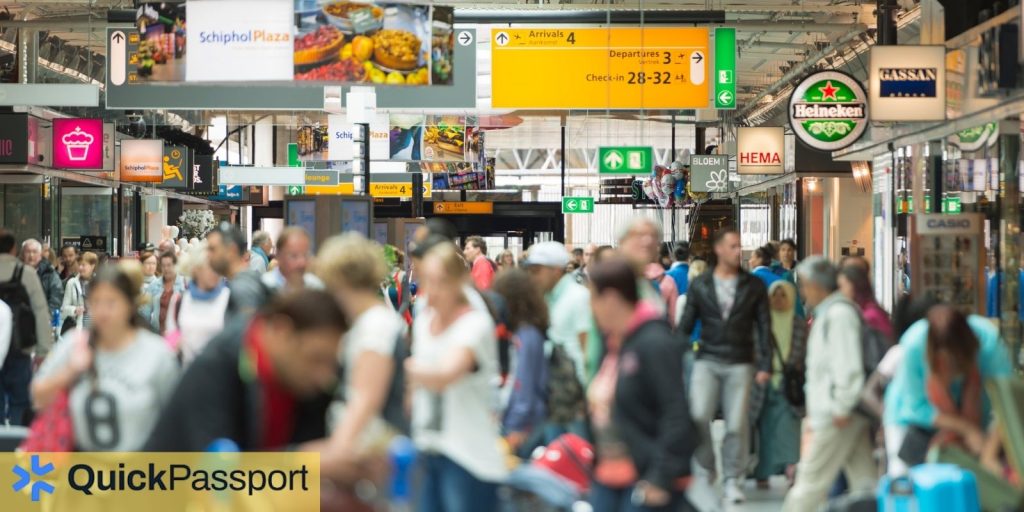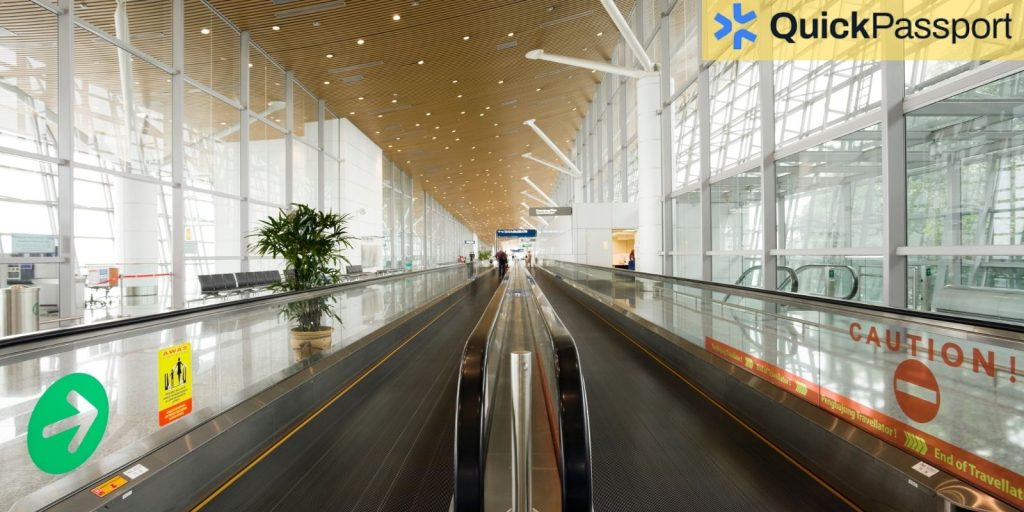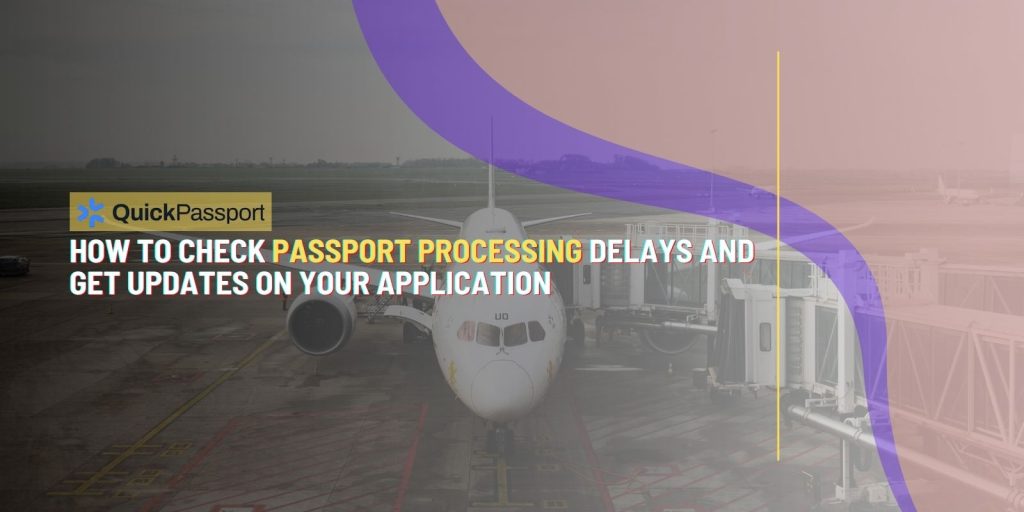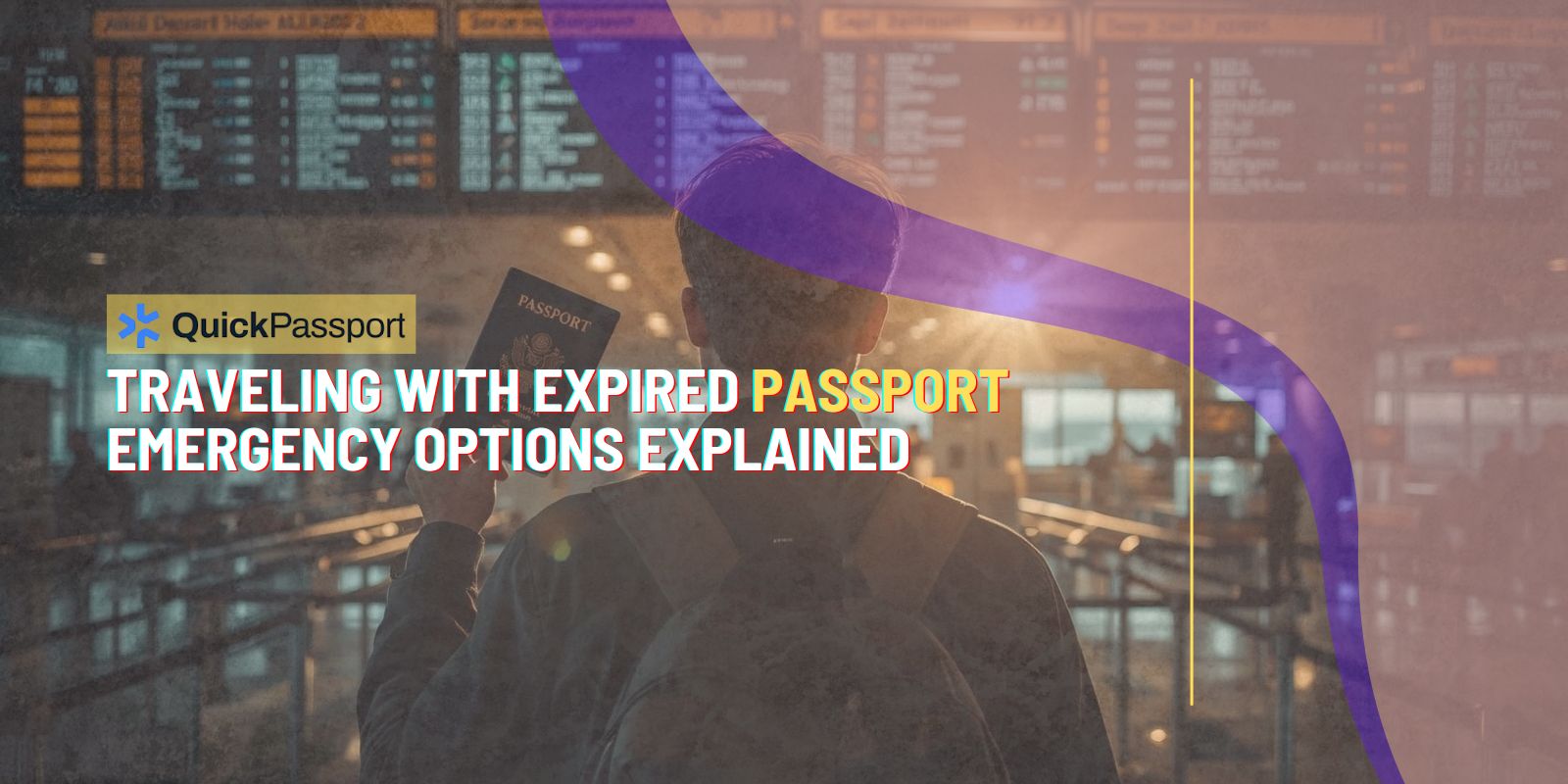Waiting for your passport can feel endless, especially when you have travel plans approaching. With processing times fluctuating throughout the year and unexpected delays becoming more common, knowing how to check your passport status and understand potential delays is crucial for every applicant. Whether you’re applying for your first passport or renewing an existing one, staying informed about your application’s progress helps you plan accordingly and take action if needed.
The good news is that multiple resources exist to track your passport application and get real-time updates on processing delays. From official government tracking systems to understanding the factors that influence processing times, this comprehensive guide will walk you through everything you need to know about monitoring your passport application status.
Overview
This guide covers essential information about checking passport processing delays and managing your application timeline effectively. You’ll discover official methods for tracking your application status, learn about current processing timeframes, and understand what factors contribute to delays. We’ll also explore practical strategies for expediting your application when time is critical, answer frequently asked questions about processing delays, and explain how professional passport services like QuickPassport Arlington can streamline your experience.
Whether you’re dealing with routine processing or facing unexpected delays, you’ll find actionable advice for every situation. We’ll cover everything from understanding status updates to knowing when to contact customer service, plus provide expert insights on avoiding common pitfalls that slow down applications.
Key Takeaways
• Official tracking systems provide the most reliable updates on your passport application status through the State Department’s online portal
• Current processing times vary between 6-8 weeks for routine service and 2-3 weeks for expedited service, but delays can extend these timeframes
• Multiple factors influence processing speed, including application volume, staff availability, and documentation completeness
• Professional services like QuickPassport Arlington offer Priority processing in 1-2 weeks, significantly faster than standard government timelines
• Proactive monitoring helps identify issues early and allows time for corrective action before travel deadlines
• Documentation accuracy remains the most important factor in avoiding unnecessary delays and processing complications
Understanding Current Passport Processing Times

The U.S. State Department regularly updates official processing times based on current application volumes and operational capacity. As of 2025, routine passport processing takes approximately 6-8 weeks from the time applications are received at processing facilities. Expedited service, which requires an additional fee, typically processes applications within 2-3 weeks.
However, these timeframes represent estimates rather than guarantees. Processing times can fluctuate significantly based on seasonal demand, staffing levels, and external factors affecting operations. Peak travel seasons like spring and summer often see extended processing times due to increased application volumes. Additionally, applications requiring additional review or missing documentation face longer delays.
Understanding these baseline timeframes helps set realistic expectations for your passport application. If your travel plans fall within or close to standard processing windows, considering expedited service or professional assistance becomes increasingly important. QuickPassport Arlington’s Priority Service processes applications in just 1-2 weeks, providing a reliable alternative when government processing times don’t align with your travel schedule.
Processing facilities operate on a first-come, first-served basis, but certain applications may require additional verification steps that extend processing time. Applications with discrepancies, missing signatures, or unclear photos often get pulled from the standard processing queue for manual review, adding several weeks to the timeline.
How to Check Your Passport Application Status Online
The most efficient way to track your passport application involves using the official State Department tracking system. This online portal provides real-time updates on your application’s progress through various processing stages. To access your status information, you’ll need your last name as it appears on your application and either your date of birth or the last four digits of your Social Security number.
The tracking system displays several status categories that indicate where your application stands in the processing pipeline. “Not Available” typically means your application hasn’t been entered into the system yet or is still in initial processing stages. “In Process” indicates your application is actively being reviewed and processed by passport specialists. “Approved” means your passport has been printed and is preparing for shipment.
When checking your status, pay attention to any special instructions or requests for additional documentation. The system will display specific messages if your application requires additional information or has encountered processing issues. Responding promptly to these requests prevents further delays and keeps your application moving through the system.
The online tracking system updates regularly, typically within 24-48 hours of any status changes. However, applications may remain in the same status for extended periods during peak processing times. Checking your status daily isn’t necessary; weekly checks provide sufficient monitoring without causing unnecessary anxiety about processing speed.
For applications submitted through QuickPassport Arlington, our team provides additional tracking support and can often provide more detailed updates about your application’s specific processing stage through our established relationships with processing facilities.
Recognizing Signs of Processing Delays
Several indicators suggest your passport application may be experiencing delays beyond normal processing timeframes. Extended time in “In Process” status often signals potential complications requiring manual review or additional verification steps. Applications typically move through initial processing stages within the first two weeks, so prolonged status without updates warrants attention.
Missing or unclear documentation represents the most common cause of processing delays. Photo quality issues, incomplete forms, or missing supporting documents frequently trigger manual review processes that extend processing time significantly. The State Department maintains strict requirements for passport photos, including specific lighting, background, and composition standards that must be met exactly.
Applications requiring additional verification due to name changes, citizenship documentation, or identity concerns face longer processing windows. Complex cases involving previous passport issues, legal name changes, or unclear citizenship documentation require specialized review that can add 2-4 weeks to standard processing times. Understanding these potential complications helps applicants prepare appropriate documentation and set realistic timeline expectations.
Geographic factors also influence processing speed, with applications from certain regions experiencing longer delays due to facility capacity and mail transit times. Applications processed through busy metropolitan areas often face longer queues than those handled by facilities serving smaller populations.
Professional services like QuickPassport Arlington help identify potential delay factors before submission, reviewing applications for completeness and accuracy to minimize processing complications. Our experienced staff recognizes common issues that cause delays and ensures applications meet all requirements before reaching processing facilities.
What Causes Passport Processing Delays

Understanding the root causes of passport delays helps applicants avoid common pitfalls and prepare more effective applications. Seasonal demand fluctuations represent the most predictable cause of processing delays, with spring and summer months consistently showing longer processing times due to increased travel planning and vacation scheduling.
Staffing challenges at processing facilities contribute significantly to processing delays, particularly during periods of high demand or operational disruptions. Facility capacity limitations mean that even perfectly prepared applications may face delays when processing volumes exceed available resources. These systemic delays affect all applications equally and cannot be avoided through individual preparation.
Documentation issues remain the leading cause of preventable delays in passport processing. Incomplete applications, poor-quality photos, missing signatures, or incorrect fee payments trigger manual review processes that significantly extend processing time. Applications with name discrepancies between supporting documents and application forms require additional verification steps that can add weeks to processing timelines.
Technical issues with application processing systems occasionally cause delays affecting large numbers of applications simultaneously. System maintenance, software updates, or technical failures can temporarily halt processing operations, creating backlogs that take weeks to clear once normal operations resume.
International factors, including diplomatic relationships and security considerations, sometimes influence processing speeds for certain types of applications or travelers. Enhanced security screening for applications involving recent international travel or specific destinations may require additional review time beyond standard processing windows.
Mail transit delays, particularly during peak postal service periods or weather-related disruptions, add time to both application delivery and passport return shipping. QuickPassport Arlington mitigates these risks through expedited shipping services and direct relationships with processing facilities that minimize mail-related delays.
Steps to Take When Experiencing Delays
When your passport application exceeds expected processing timeframes, taking proactive steps helps identify issues and potentially accelerate processing. Contacting the National Passport Information Center at 1-877-487-2778 provides access to customer service representatives who can review your application status and identify specific delay causes.
Before calling customer service, gather all relevant information including your application tracking number, submission date, and any reference numbers from previous communications. Prepare specific questions about your application status rather than general inquiries about processing times, as representatives can provide more detailed assistance when focused on your specific case.
If your application shows “In Process” status for longer than expected timeframes, request a detailed status review to identify potential issues requiring resolution. Documentation requests or clarification needs may not appear in online tracking systems immediately, so direct communication with customer service can reveal actionable steps for moving your application forward.
For urgent travel needs arising after application submission, explore available expedited processing options through the appointment system or congressional inquiry processes. Emergency passport services are available for life-or-death situations, though these require extensive documentation and proof of emergency circumstances.
Consider professional assistance when dealing with complex delay situations or urgent travel deadlines. QuickPassport Arlington maintains direct communication channels with processing facilities and can often provide more specific guidance on resolving delay issues than general customer service representatives.
Document all communications with passport services, including reference numbers, representative names, and specific guidance provided. Maintaining detailed records helps track progress and provides valuable information for follow-up communications or escalation if necessary.
Expedited Processing Options and Alternatives
When standard processing times don’t align with your travel plans, several expedited options help accelerate passport processing. Government expedited service reduces processing time to approximately 2-3 weeks for an additional fee, though this timeline can still extend during peak periods or when complications arise with individual applications.
Expedited processing requests must be clearly marked on applications and include appropriate additional fees to ensure proper handling. Expedited applications receive priority processing but still follow the same review procedures as routine applications, meaning documentation issues or verification requirements can still cause delays even with expedited service.
For urgent travel needs within 14 days, emergency passport appointments are available at regional passport agencies and centers. These appointments require proof of imminent international travel and often involve extensive documentation requirements and limited availability, particularly during peak travel seasons.
Professional passport services offer the most reliable expedited processing options, with established relationships and streamlined procedures that minimize processing complications. QuickPassport Arlington’s Priority Service processes applications in just 1-2 weeks, providing significantly faster turnaround than government expedited service while maintaining the same thorough review standards.
Private expediting services handle all aspects of the application process, from document review and photo services to submission and tracking, reducing the likelihood of delays caused by documentation issues or submission errors. Comprehensive service packages include everything needed for successful passport processing, eliminating common delay factors that affect individual applications.
When choosing expedited processing options, consider the total timeline including application preparation, submission processing, and delivery time. Professional services often provide more accurate timeline estimates based on current processing conditions and can adjust strategies based on real-time facility capacity information.
Tracking Multiple Applications and Family Passports

Managing multiple passport applications requires organized tracking systems and clear communication with all family members involved in the process. Family applications submitted together don’t necessarily process at the same speed, as individual applications may encounter different review requirements or documentation issues that affect processing timelines independently.
Each passport application receives a unique tracking number that must be monitored separately through the official tracking system. Maintaining detailed records for each family member, including application dates, tracking numbers, and expected processing timeframes, helps ensure no applications are overlooked during the waiting period.
Children’s passport applications often face additional review requirements due to custody documentation and parental consent requirements, potentially extending processing time beyond adult applications submitted simultaneously. Minor applications require both parents’ consent or legal documentation explaining single-parent authority, adding complexity that can trigger manual review processes.
Group travel planning requires coordination between multiple passport processing timelines and consideration of worst-case delay scenarios. Contingency planning for family trips should account for the possibility that some family members may receive passports significantly later than others, requiring flexible booking strategies or backup travel arrangements.
Professional services excel at managing multiple applications efficiently, with dedicated tracking systems and communication protocols that keep families informed about each application’s progress. QuickPassport Arlington provides comprehensive family service packages that ensure all applications receive consistent handling and coordinated processing timelines.
Regular status checks for all family applications help identify developing issues early and allow time for corrective action before travel deadlines. Proactive monitoring becomes even more critical when coordinating multiple applications with interconnected travel plans.
Communication with Passport Services
Effective communication with passport services requires preparation, patience, and clear documentation of all interactions. National Passport Information Center representatives can provide detailed status updates and guidance on resolving specific application issues, but peak call times often result in extended wait periods for customer service access.
When contacting passport services, prepare comprehensive information about your application including submission method, tracking numbers, payment information, and specific concerns about processing delays. Organized information helps representatives locate your application quickly and provide more targeted assistance during limited conversation time.
Document all communications with passport services, including representative names, reference numbers provided, and specific guidance or promises made during conversations. Detailed records prove invaluable when following up on previous communications or escalating issues that remain unresolved after initial contact attempts.
Congressional inquiry services provide additional communication channels for constituents experiencing significant passport delays that impact urgent travel needs. Legislative office assistance can sometimes expedite review processes or provide more detailed explanations of delay causes when standard customer service channels prove insufficient.
Professional passport services maintain established communication channels with processing facilities that often provide more detailed and timely information than general customer service lines. Direct facility relationships allow experienced providers like QuickPassport Arlington to obtain specific processing updates and guidance that aren’t available through standard public communication channels.
Email communications with passport services should include all relevant application information and specific questions rather than general delay concerns. Targeted inquiries receive more helpful responses than broad requests for status updates that representatives can easily address through standard tracking systems.
Common Questions About Passport Processing Delays
How long do passport processing delays typically last?
Processing delays vary significantly depending on the underlying cause, but most delays extend standard processing times by 2-4 weeks. Seasonal delays during peak travel periods may persist for several months, while delays caused by documentation issues typically resolve within 2-3 weeks once corrective information is provided. Systemic delays affecting entire processing facilities can last 4-6 weeks during periods of high demand or operational challenges.
Can I get a refund if my passport is severely delayed?
The State Department does not offer refunds for processing delays, even when applications exceed published processing timeframes significantly. However, expedited service fees may be refunded if expedited applications fail to meet expedited processing windows due to agency delays rather than applicant issues. Refund requests require extensive documentation and approval through formal complaint processes.
What happens if my travel date arrives before my passport?
Emergency passport services are available for life-or-death situations requiring immediate international travel, though these services require extensive documentation and proof of emergency circumstances. For less urgent situations, travelers may need to postpone travel plans or seek professional assistance to expedite processing through available channels.
How accurate are online status updates for tracking delays?
Online tracking systems provide reliable information about major processing milestones but may not reflect real-time application status during manual review processes. Status updates typically lag behind actual processing progress by 24-48 hours, and applications may remain in the same status for extended periods without indicating processing problems.
Do expedited applications ever face the same delays as routine processing?
Expedited applications receive priority handling but still undergo the same review processes as routine applications, meaning documentation issues or verification requirements can cause delays even with expedited service. However, expedited applications typically process faster than routine applications even when delays occur, maintaining some timeline advantage over standard processing.
Can professional services really speed up government processing times?
Professional services cannot alter government processing speeds but can significantly reduce delays caused by application errors, documentation issues, or submission problems. Services like QuickPassport Arlington provide Priority processing through established relationships and streamlined procedures that minimize common delay factors affecting individual applications.
What should I do if my passport application disappears from the tracking system?
Applications occasionally disappear from tracking systems due to technical issues or processing transfers between facilities. Contact customer service immediately with your application information to locate your application and restore tracking access. Most tracking issues resolve within 24-48 hours once identified by customer service representatives.
Are there certain times of year when delays are more likely?
Spring and summer months consistently show longer processing times due to increased travel planning and vacation scheduling. Holiday periods may also see processing delays due to reduced facility operations and increased application volumes. Planning applications well ahead of peak periods helps avoid seasonal delay complications.
How do I know if my delay is normal or indicates a problem?
Applications exceeding published processing timeframes by more than 2 weeks may indicate specific processing issues requiring attention. Contact customer service when your application remains in the same status for longer than expected timeframes based on current processing estimates. Professional services can provide more specific guidance on whether delays indicate processing problems.
Can I submit a new application if my current one is severely delayed?
Submitting duplicate applications is not recommended and may actually slow processing for both applications. Instead, work with customer service to resolve issues with your existing application or seek professional assistance to expedite processing through available channels. Duplicate applications can create confusion and additional delays in the processing system.
Planning Ahead to Avoid Future Delays
Smart passport planning involves understanding processing cycles and preparing applications well ahead of travel deadlines. Advance planning eliminates the stress of rush processing and provides multiple options for addressing unexpected delays or complications that arise during processing.
Monitor your passport expiration date regularly and begin renewal processes at least 6-8 months before expiration, particularly if you travel frequently or live in areas with limited passport service access. Early renewal ensures continuous passport validity and avoids the complications that arise when passports expire during processing periods.
Maintain organized records of all passport-related documentation, including previous passports, name change documents, and citizenship proof, to streamline future applications and avoid documentation delays. Comprehensive record-keeping proves invaluable when preparing renewal applications or addressing verification requirements that arise during processing.
Consider the timing of life events like marriages, divorces, or legal name changes that may complicate passport applications and require additional processing time. Strategic timing of passport applications around major life changes helps avoid the additional verification requirements that extend processing timelines.
Research seasonal travel patterns and processing cycles to identify optimal application timing that avoids peak processing periods. Off-season applications typically process faster and encounter fewer complications than applications submitted during busy travel seasons.
Professional services provide valuable consultation on application timing and preparation strategies that minimize delay risks. QuickPassport Arlington’s experienced staff helps clients plan passport applications around travel schedules and personal circumstances to ensure smooth processing and timely delivery.
Get Your Passport Processed Efficiently in Arlington
Navigating passport processing delays requires patience, preparation, and often professional guidance to ensure your travel plans stay on track. Understanding how to check your application status, recognize potential delay signs, and take proactive steps when issues arise empowers you to manage the passport process confidently. While government processing times continue to fluctuate, staying informed about your application’s progress and maintaining realistic expectations helps reduce stress during the waiting period.
QuickPassport Arlington specializes in streamlining the passport process for Northern Virginia residents, offering Priority Service that delivers completed passports in just 1-2 weeks. Our experienced team handles every aspect of your application, from document review and professional photography to submission and tracking, ensuring your application meets all requirements and avoids common delay factors. When time matters and travel plans can’t wait, our proven track record and established relationships with processing facilities provide the reliability you need for successful passport processing.






